Every day our teams provide emergency medical care to people affected by conflict, epidemics, disasters and neglect. With you, our supporters, behind us, we worked tirelessly to help all those people we could and bring positive change to their lives. As we enter 2019, we bring you stories of change from the year 2018.
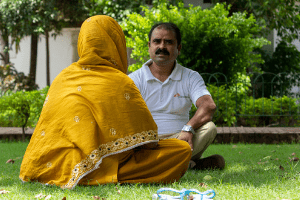 Zoya’s story: “I have returned from the brink of death”
Zoya’s story: “I have returned from the brink of death”
Not just the lack of awareness and social stigma, kala azar-HIV co-infected patients are also prone to other infections, relapse more often and are at a greater risk of death. 39-year-old Zoya shares her story of recovery after being treated for kala azar and HIV at Doctors WithoutBorders India / Médecins Sans Frontières (MSF) ward in Patna, Bihar.
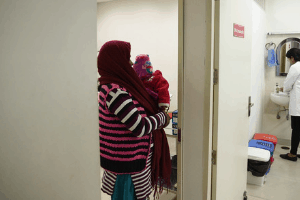 Delhi: Bringing medical care to victims of sexual and domestic violence in one of city’s biggest slum areas
Delhi: Bringing medical care to victims of sexual and domestic violence in one of city’s biggest slum areas
Shailja was three months pregnant when she first came to MSF SGBV project, a community-based clinic run by Doctors Without Borders / Médecins Sans Frontières (MSF) in North West Delhi’s densely populated Jahangirpuri area. She looked anxious and confused. Like a lot of women from this area, she had suffered domestic violence, but unlike many others, she decided to seek help.
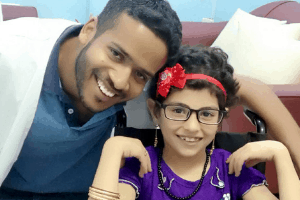 Jordan: “Managing complicated wounds proved much easier than saying a simple goodbye”
Jordan: “Managing complicated wounds proved much easier than saying a simple goodbye”
Orthopaedic surgeon Mukul Singhal went to Jordan for his first assignment with MSF, where our teams provide medical and psychological care to war-wounded patients from Syria. He shares his experience in this blog.
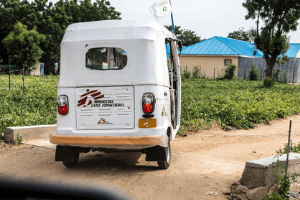 Nigeria: No red lights to saving lives
Nigeria: No red lights to saving lives
Around the world, three wheelers offer a cheap means of urban transport. In Gwoza in north-east Nigeria, these small three-wheeled vehicles, known locally as keke napeps, are more than just a means of public transport; they are a means of saving lives.
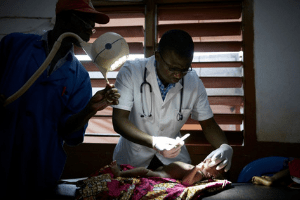 From biofuel to virtual reality: Four innovative new projects from Doctors Without Borders
From biofuel to virtual reality: Four innovative new projects from Doctors Without Borders
How can we use technology to save more lives? Pete Masters, Medical Innovation Advisor for MSF, blogs about the latest Doctors Without Borders projects aiming to do just that.
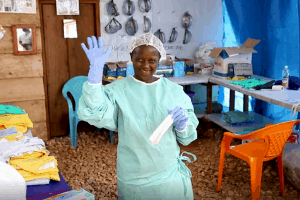 Meet Aline, an Ebola Survivor in the Democratic Republic of Congo
Meet Aline, an Ebola Survivor in the Democratic Republic of Congo
Because Aline Kahindo Mukandala recovered from Ebola she is now temporarily immune to the disease and can assist patients without wearing full personal protective equipment, or PPE. Here, Aline gives a tour of MSF’s Ebola treatment center, where she was treated, in Mangina, North Kivu province, Democratic Republic of Congo (DRC).
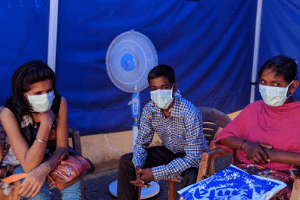 Renewed hope- Stories of four patients fighting drug-resistant-TB in Mumbai
Renewed hope- Stories of four patients fighting drug-resistant-TB in Mumbai
Pooja, Rekha, Vikas and Sita are receiving care in MSF’s DR-TB programme in Mumbai, where a multi-disciplinary MSF team is providing patients with resistant strains of TB with individual regimens of drugs are tailored according to their individual needs. They share their stories of courage and endurance.
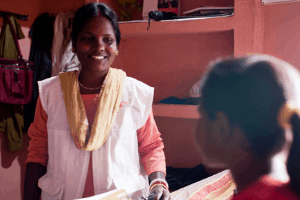 Jharkhand: “I was a teenage mother with the same story”
Jharkhand: “I was a teenage mother with the same story”
Since June 2017, MSF has been treating severe acute malnutrition in the town of Chakradharpur, in Jharkhand, using an innovative community engagement model. Subashini Deb Mahto, from one of the local communities, works for MSF as a Community Health Educator. Here she shares her experiences, both her work with MSF and her first-hand experience of malnutrition.
 Access to medicines: Brazilian court suspends Gilead’s patent on hepatitis C medicine sofosbuvir
Access to medicines: Brazilian court suspends Gilead’s patent on hepatitis C medicine sofosbuvir
A Brazilian Federal Court suspended a patent granted to US pharmaceutical corporation Gilead Sciences for the oral hepatitis C drug sofosbuvir on 24th September 2018. Sofosbuvir is an oral, direct-acting antiviral drug that is safer, more tolerable and more effective than older hepatitis C treatments.
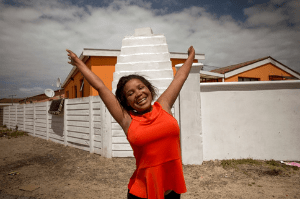 South Africa: A new revolution in TB treatment as the injection falls
South Africa: A new revolution in TB treatment as the injection falls
South Africa is the first country in the world to take this bold step aimed at scaling up access to an effective new drug, making MDR-TB treatment more tolerable, and reducing the devastating impact of side effects caused by the injectable agents.
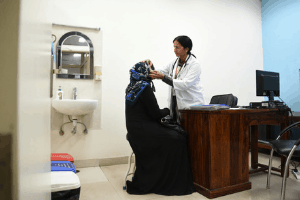 Delhi: “He would come home drunk, beat me, pee on my face and threaten to abuse me in worse ways.”
Delhi: “He would come home drunk, beat me, pee on my face and threaten to abuse me in worse ways.”
A thin framed Kamla looked around through her meek sunken eyes, unsure whether she was at the right place, wondering whether she should share her experience or not. This was the first time she was visiting MSF SGBV clinic on the recommendation of our health educator. She had experienced domestic violence.
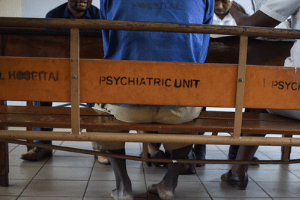 Healing trapped minds in Zimbabwe’s Chikurubi Prison
Healing trapped minds in Zimbabwe’s Chikurubi Prison
After providing mental healthcare for inmates in a prison in Harare, Zimbabwe, for over five years, MSF handed over its project to government authorities. Manighandan Sivaramakrishnan, a public health professional from India, was associated with the project in its concluding months and coordinated the handover. In this interview, he explains the origins and outcomes of the project.












